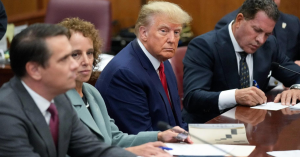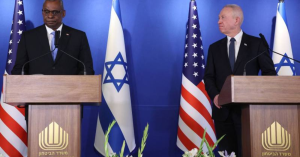The United Arab Emirates (UAE) is a country that relies heavily on migrant workers to sustain its booming economy. According to the International Labour Organization (ILO), there are approximately 10 million migrant workers in the UAE, comprising roughly 90% of the country’s private-sector workforce. These workers are predominantly from South and Southeast Asia, with many coming from India, Pakistan, Bangladesh, and the Philippines.
While the UAE has made significant strides in recent years to improve the rights of migrant workers, there remain serious concerns about the exploitation and abuse that many of these workers face. In this article, we will examine the current state of migrant workers’ rights in the UAE, including the factors that contribute to their exploitation and abuse, the government’s efforts to improve their situation, and the steps that need to be taken to ensure that these workers are treated fairly and have access to basic human rights.
Exploitation and Abuse of Migrant Workers
Migrant workers in the UAE face a range of challenges and abuses, including non-payment of wages, long working hours, poor living conditions, and restrictions on their freedom of movement. Many of these workers are employed in the construction industry, where they are subjected to dangerous working conditions and are often forced to work in extreme heat.
One of the most significant challenges faced by migrant workers is the kafala system, a sponsorship system that ties workers to their employers. Under this system, workers are required to obtain a visa and a sponsor before they can enter the country, and their sponsor is responsible for their visa and residency permit. This effectively ties the worker to their employer, who has significant control over their ability to work and reside in the country.
This system leaves workers vulnerable to exploitation and abuse, as employers can withhold wages, confiscate passports, and restrict workers’ ability to leave the country or change jobs. There have been numerous reports of employers subjecting workers to physical and sexual abuse, and many workers are afraid to speak out for fear of losing their jobs or facing deportation.
In addition to the kafala system, there are also concerns about the lack of labor protections and the weak enforcement of existing laws. Migrant workers are often excluded from labor protections, such as minimum wage laws and health and safety regulations. Even when these protections exist, they are often not enforced, leaving workers without recourse when they are subjected to abuse or exploitation.
The government’s response to these challenges has been mixed. While there have been efforts to improve the rights of migrant workers, there remain significant gaps in protections and enforcement, leaving many workers vulnerable to abuse and exploitation.
Government Efforts to Improve Migrant Workers’ Rights
The UAE government has taken a number of steps in recent years to improve the rights of migrant workers. In 2017, the government introduced a new labor law that aimed to improve working conditions and protections for workers. The law included provisions for minimum wage, working hours, and annual leave, as well as provisions for the resolution of labor disputes.
In addition, the government has taken steps to reform the kafala system, including the introduction of a new system called the “employment contract” system. Under this system, workers sign a contract with their employer that specifies their rights and responsibilities, including their wages, working hours, and the terms of their residency permit.
The government has also established a number of bodies to oversee labor rights and enforcement, including the Ministry of Human Resources and Emiratization, the National Human Rights Committee, and the Federal Authority for Identity and Citizenship. These bodies are responsible for monitoring labor conditions, investigating labor complaints, and enforcing labor laws and regulations.
While these efforts are commendable, there remain significant gaps in protections and enforcement that need to be addressed in order to fully protect the rights of migrant workers in the UAE. Despite some positive steps taken by the government, such as the introduction of labor reforms and the establishment of a grievance mechanism for workers, there are still significant challenges that need to be addressed.
One major issue is that many workers in the UAE are still tied to their employers through the kafala sponsorship system. Under this system, workers are unable to leave their jobs or the country without the permission of their employer, which can leave them vulnerable to exploitation and abuse. While the UAE has taken steps to reform the kafala system, including introducing a new law that allows workers to change employers without their sponsor’s consent under certain conditions, the system remains in place and workers are still at risk.
Additionally, while the UAE has made efforts to improve the living and working conditions of migrant workers, there are still reports of overcrowded and unsanitary living conditions in labor camps. There are also reports of workers being subjected to forced labor and debt bondage, particularly in the construction industry. Despite these issues being illegal under UAE law, there are still gaps in enforcement and workers may not have access to legal remedies to seek redress.
Furthermore, while the UAE has made efforts to improve access to healthcare for migrant workers, there are still barriers to accessing affordable and quality healthcare services. Many workers may not be able to afford healthcare, particularly those who are undocumented or working in the informal sector. Language barriers and a lack of information about available services can also make it difficult for workers to access healthcare.
In order to fully address these challenges and protect the rights of migrant workers in the UAE, there are several additional steps that the government could take. These include:
– Eliminating the kafala system: The UAE government could abolish the kafala system and replace it with a more transparent and equitable system that ensures workers have the right to leave their jobs and the country without their employer’s permission.
– Strengthening enforcement: The UAE government could increase enforcement of labor laws and regulations, particularly in sectors where there are high numbers of migrant workers. This could involve increasing the number of labor inspectors and improving their training and capacity to identify and address labor violations.
– Empowering workers: The UAE government could empower migrant workers by ensuring that they have access to information and resources that allow them to assert their rights. This could involve providing workers with access to legal assistance and support services, as well as information about their rights and how to file complaints.
– Addressing discrimination: The UAE government could address discrimination against migrant workers by enforcing anti-discrimination laws and raising awareness among employers and the public about the rights of migrant workers. This could involve launching public awareness campaigns and training programs for employers on the importance of treating workers fairly and with respect.
– Improving access to healthcare: The UAE government could improve access to healthcare for migrant workers by ensuring that they have access to affordable and quality healthcare services. This could involve partnering with healthcare providers to offer low-cost healthcare services to workers or setting up mobile clinics in labor camps.
– Providing better working conditions: The UAE government could improve working conditions for migrant workers by ensuring that they have access to safe and healthy working environments. This could involve requiring employers to provide adequate safety equipment and training, enforcing safety standards on construction sites, and providing workers with access to legal remedies in case of workplace accidents or injuries.
Overall, while the UAE has made some progress in improving the rights of migrant workers, there is still significant work that needs to be done to fully protect their rights and ensure that they are treated fairly and with dignity. By taking the steps outlined above, the UAE government could create a more just and equitable society for all and demonstrate its commitment to human rights.
The UAE government has also introduced several other initiatives aimed at improving the rights of migrant workers. One of the most notable initiatives is the Wage Protection System, which requires employers to pay workers their salaries through banks rather than in cash. The system ensures that workers receive their salaries on time and helps prevent wage theft. The government has also established a labor complaints and suggestions service called “Tawasul,” which allows workers to file complaints and provide feedback on their working conditions.
However, despite these efforts, there are still numerous reports of migrant workers facing exploitation, abuse, and poor working conditions in the UAE. Many workers continue to work long hours in dangerous and unhealthy conditions, without proper access to healthcare or legal protections. Migrant workers also often face discrimination, with many being paid significantly less than their Emirati counterparts for the same work.
In recent years, there have been several high-profile cases of migrant workers dying while working on construction sites in the UAE. In 2017, an investigation by The Guardian found that hundreds of migrant workers had died in the country since it won the right to host the World Cup in 2022. The investigation found that many of the workers had died as a result of heat exhaustion, overwork, or accidents on construction sites.
The UAE government has taken some steps to address these issues. In 2017, it introduced new regulations aimed at improving safety standards on construction sites. The regulations require contractors to provide workers with adequate safety equipment and training and to comply with international standards for working conditions.
Despite these efforts, there are still numerous reports of migrant workers facing exploitation, abuse, and poor working conditions in the UAE. Human rights organizations have called on the UAE government to do more to protect the rights of migrant workers, including improving access to healthcare, ensuring that workers are paid a living wage, and strengthening legal protections against abuse and exploitation.
In conclusion, the UAE relies heavily on migrant workers to sustain its economy and build its impressive infrastructure. While the government has taken some steps to improve the rights of these workers, more needs to be done to ensure that they are treated fairly and have access to basic human rights. The UAE government should strengthen legal protections against abuse and exploitation, improve access to healthcare, and ensure that workers are paid a living wage. Only by taking these steps can the UAE ensure that it is a fair and just society that respects the rights and dignity of all workers, regardless of their nationality or background.
Author
-
The New York Center for Foreign Policy Affairs (NYCFPA) is a policy, research, and educational organization headquartered in New York State with an office in Washington D.C. NYCFPA is an independent, non-profit, non-partisan, institution devoted to conducting in-depth research and analysis on every aspect of American foreign policy and its impact around the world. The organization is funded by individual donors. The organization receives no corporate or government donations.





